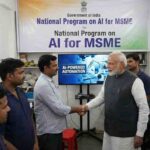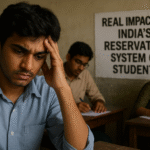Non-Governmental Organizations (NGOs) play a crucial role in democratic societies, particularly in engaging and mobilizing young people in political processes. By providing education, resources, and platforms for expression, NGOs are at the forefront of empowering the youth, ensuring their voices are not only heard but also influential in shaping policies and practices.
The Catalysts of Youth Political Engagement
NGOs operate in various capacities to engage young people in politics, from grassroots campaigning to policy advocacy at the national level. They create spaces for dialogue, offer training in leadership and civic responsibilities, and act as a bridge between young citizens and political structures.
Key NGOs Making a Difference
1. Awaaz.do:
Based in India, Awaaz.do focuses on mobilizing young people for social and political change through digital campaigns and on-ground workshops. It encourages youth to voice their opinions on critical issues and connects them with policymakers.
2. Pravah:
Pravah is an NGO that works to develop youth leadership in India. Through its innovative programs like SMILE In-turn-ship and the Change Looms Learning and Leadership Journey, Pravah empowers young people to initiate social change projects in their communities, thereby fostering a sense of responsibility and engagement in governance.
3. Youth Ki Awaaz:
Youth Ki Awaaz (Voice of the Youth) is an online platform that provides young Indians with a space to articulate their views on issues ranging from politics and culture to gender and social justice. By democratizing how narratives are created and shared, this platform ensures that young voices contribute significantly to the national discourse.
The Impact of NGO Initiatives
NGOs have a profound impact on youth political engagement. By educating young people about their rights and the importance of their involvement in politics, these organizations help cultivate a more informed, responsible, and proactive citizenry. Moreover, they provide the tools and confidence needed to navigate political systems, influence public policy, and hold leaders accountable.
Challenges and Opportunities
While NGOs have made significant strides in empowering youth, they face challenges such as limited funding, political resistance, and sometimes, a lack of engagement from the very youth they aim to mobilize. However, the digital age presents unique opportunities for NGOs to innovate in their engagement strategies, reaching a broader audience through social media and other online platforms.
Conclusion
The role of NGOs in empowering youth voices is vital in fostering a politically engaged and informed generation. As the challenges facing democracies globally become more complex, the involvement of young people in political processes is more crucial than ever. NGOs not only provide the necessary platforms and support for this involvement but also ensure that young voices are an integral part of shaping the future. As such, supporting and expanding the reach of these organizations is essential for the health and vitality of democracy.




























